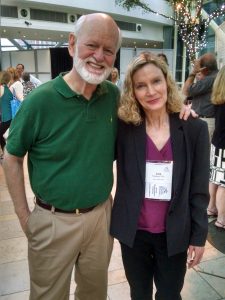Like many of us, nerves can take over before presenting a presentation. This Harvard Business Review article provides some great pointers for overcoming those nerves.
Like many of us, nerves can take over before presenting a presentation. This Harvard Business Review article provides some great pointers for overcoming those nerves.
 Trust me, willpower is over rated. Here’s a quick read on the science behind developing the habits you want:
Trust me, willpower is over rated. Here’s a quick read on the science behind developing the habits you want:
“Trying to change behavior through willpower alone rarely works in the long term. Willpower gives out. New behavior sticks in the long term when you make it automatic.” JOSHUA SPODEK, InC.
Source: Science Shows Habits Spread Like Disease. How to Catch the Habits You Want
 Duncan Coombe with the Harvard Business Review reflects on an emotion that’s too often overlooked in business and asks; “If just about every person on the planet has at some point spoken about the centrality of love to well-being, why do we hear so little about it in the context of work?”
Duncan Coombe with the Harvard Business Review reflects on an emotion that’s too often overlooked in business and asks; “If just about every person on the planet has at some point spoken about the centrality of love to well-being, why do we hear so little about it in the context of work?”
 There’s a shift under way in large organizations, one that puts design much closer to the center of the enterprise. But the shift isn’t about aesthetics. It’s about applying the principles of design to the way people work.
There’s a shift under way in large organizations, one that puts design much closer to the center of the enterprise. But the shift isn’t about aesthetics. It’s about applying the principles of design to the way people work.
Source: Design Thinking Comes of Age
Here’s an article by Margarita Mayo, Ph.D., Professor of Leadership at IE Business School in Madrid. She discusses some very interesting research findings about how women are really perceived in the workplace.
Replacing an employee is incredibly expensive: on average, the cost of replacing a worker is, at minimum, 30% of that employee’s annual salary. This number increases depending on the type, level, or tenure of the employee in question.
Do you believe or disbelieve in the theory that “everyone is replaceable?”
Source: When Long Time Employees Quit Avoiding the Knowledge Vacuum
 A little over a week ago I had the privilege of attending the Midwest Regional Conference of ICF (the International Coach Federation.)
A little over a week ago I had the privilege of attending the Midwest Regional Conference of ICF (the International Coach Federation.)
It was quite an event with over 400 attendees from all over the world meeting for three days to meet great people, generate new ideas, and amp up their knowledge base and energy around coaching. The new research, especially about the neuroscience, is coming in at an astounding pace. It was truly an opportunity to learn it from the masters.
Among them was one of my favorites, Marshall Goldsmith, who was just recognized yet again as the World’s #1 Leadership Thinker and #1 Executive Coach at the Thinkers50 ceremony in London. As many of you know, his background is formidable: as an executive coach to CEOs of top companies, (like Allan Mulally during the Ford Motor Company turnaround), as a distinguished professor at Dartmouth, and as the author or editor of 35 books. His books have sold more than two million copies, have been translated into 30 languages, and have become best sellers in 12 countries.
Now can you see why I am impressed? As it turned out, I not only had the opportunity to meet him and chat a bit, I even received a warm hug and took a picture with him. This giant in the field was an unassuming gentle man whom I was honored to meet.
Marshall’s books Mojo and What Got You Here Won’t Get You There, have been standards that I have recommended to my client’s for years. These books have helped them develop new ways of thinking and being as they learn to make the critical shifts necessary as their careers progress. His keynotes, which book-ended the three-day event were on the topics of his What Got You Here Won’t Get You There book and his latest book, Triggers: The Six Questions to Kick-Start Change.
In his new book Triggers, Marshall describes, in depth, the tools and how to use them with clients. He uses these tools himself daily with the goal of “creating behavior that lasts” and “becoming the person you want to be.” I recommend you check it out too!

Looking to boost your resilience at work? This Harvard Business Review article articulates well how to do so.
What trait do you think matters most when meeting a new potential client or customer? Read this Inc. article to see if your opinion lines up with theirs.
Source: A Harvard Psychologist Says This Trait Matters Most: 10 Ways to Make a Great First Impression
This article is a good reminder, kindness can make all the difference.
And, as a side benefit, when you’re kind to others, you’ll be a happier person as a result.